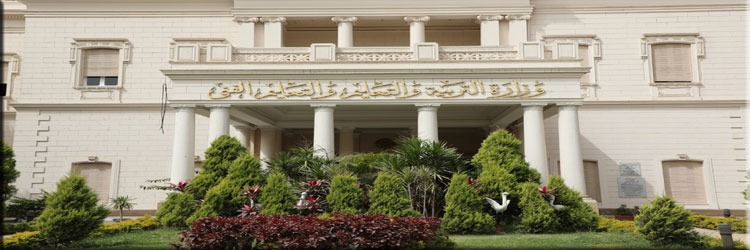"Education" issues a periodical book on procedures and controls for school feeding

Dr. Tariq Shawky, Minister of Education and Technical Education, issued a periodical book on the procedures and controls of school feeding, in light of the ministry’s keenness on the smooth and safe conduct of the educational process in a manner that ensures the preservation of public health and the proper growth of students by providing safe and healthy school feeding, in addition to To the need to emphasize the commitment of the concerned authorities to all instructions related to the general health of students.
In the periodic book, all educational directorates must abide by the following:
Not to supply any food products, related to school feeding, except after fulfilling food safety requirements in accordance with the monthly supply certificate issued by the National Food Safety Authority.
Providing the General Administration of Nutrition at the Ministry's General Office with the data of the company's stores and packing centers for each governorate.
Not to store school meals in the company’s warehouses unless they are registered with the Factory Control Department of the National Food Safety Authority.
Transporting meals by means of transport that meet the requirements of food handling, and at the responsibility of the distributor.
Providing the General Administration of Nutrition at the Ministry's general office with the data of the distributors of school meals in the governorate.
Adhering to the instructions of the National Food Safety Authority regarding the follow-up to the supply of school meals, and dealing in the event of a suspected outbreak of food spread.
Adhering to the health status follow-up forms for students before and after distributing the school meal.
The Ministry also stated in its periodic book that school officials must abide by the following:
Spreading health awareness among students and urging them to adhere to good health practices.
Receiving school meals in accordance with the instructions and procedures regulating this, and not distributing any expired meals, or showing some signs of corruption, and if this is proven, they are assembled, a return report is drawn up, and stored in a designated place, with a record on it for returns, and delivered to the distribution vehicle on the next day .
Follow the instructions of the Ministry of Health and Population regarding dealing with students and the surrounding environment in the event of any disease symptoms appearing on the students.
Coordination between the educational directorates and representatives of the National Food Safety Authority in the governorates, in order to develop a plan to follow up on providing school meals to students.
Implementing the instructions for tracking the school meal, as well as the instructions for following up on the health status of the school.
Providing an official in each school to follow up on the health status of students and to follow up and record any symptoms before and after eating the school meal, with the aim of carrying out sanitary isolation measures; In order to preserve the health of students and reduce the chances of the spread of diseases among them, and to take the necessary measures in this.
- Collecting data early and quickly when any symptoms of illness appear on the students without causing panic or confusion, while displaying all data with complete transparency.
School meals should not be stored in schools, and in case of storage, the responsibility lies with the schools where they are stored.
The Ministry stressed that all professional bodies implement these controls and abide by the instructions contained in this book, and all responsible officials should follow up on the implementation of this personally, and whoever violates this will be subject to legal accountability.
